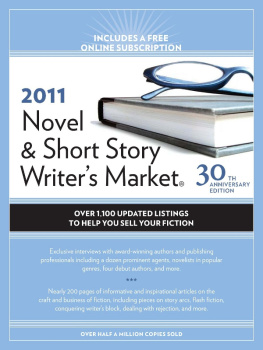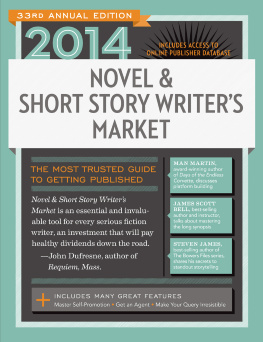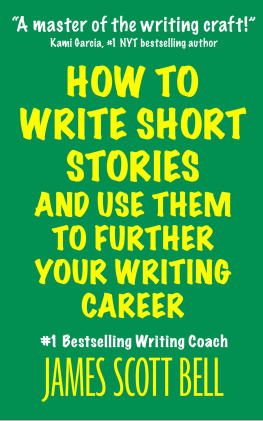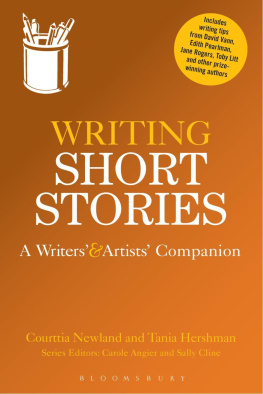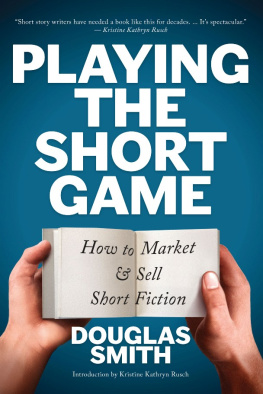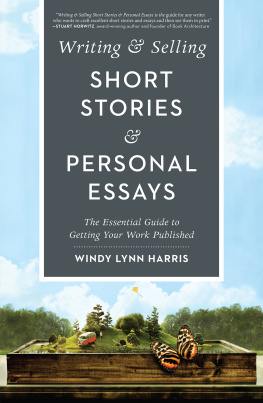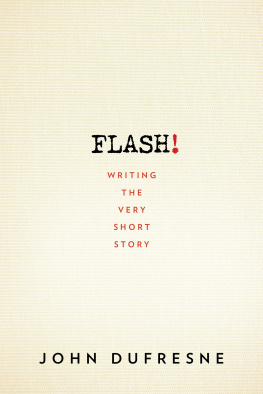All rights reserved.
No part of this book may be reproduced in any form or by any electronic or mechanical means, including information storage and retrieval systems, without written permission from the author, except for the use of brief quotations in a book review.
Cover Image Stock Illustration Seamless Pattern on the Theme 2021 Zagory | Deposit Photos
Cover Image Stock Illustration Colorful Paper Note Adhesive Tape 2021 Vectorism | Deposit Photos
INTRODUCTION
During my time learning how to submit short stories and make it into a business, I repeatedly found that there were plenty of books on how to write a short story, but none on what to do with it after Id written it. There was nothing about how to find markets, how to craft a cover letter, what editors wanted outside of their submission guidelines, and so forth. Because of this, I had to wing it, to learn as I went. Now here I am, with over fifty short stories published. In looking around again recently, I found the same problem existed: a lot of people wanted to tell me how to write a short story, something that had come naturally for me to begin with, but not what to do with it afterward. You know why? Many of the people writing those books are actually novelists who merely dabble in short stories. Thats why this book exists now.
This book is intended as a jumping off point for those of you who want to actively submit or publish those gems youve written. While there is a section on writing them, its brief and meant to give the basics, the dynamics behind the short story. The true intent of this book is to help you become a professional short story author and to grow comfortable with the process faster than you might have otherwise. Hopefully without having to learn the hard way through your mistakes like I did.
I come at this as someone who has a passion for the art of short stories, and who has been working in the field for over a decade. Ive learned a lot through my own experiences, but also through speaking to friends who are editors and published authors. In an attempt to learn and improve my craft, Ive done significant research on the art and the field. The information Im presenting in this book is hard won in many cases, but it has all been worth it to continue being an author of short stories. Each new release is a reward in itself, and Id like others to get to feel how delightful and satisfying it can be. So much of the writing world focuses on novels, but short stories are a viable and satisfying option for those who have no interest in writing a novel.
Short stories have existed for a long time and will continue to exist and even to flourish well into the future. Theyre an art form separate from novel writing, and my first and favorite love in writing. When writing short, youre forced to be succinct, to boil the vision in your head down to its basic form, while still conveying character, setting, and story arc, and entertaining in the process.
Neil Gaiman said, Short stories are tiny windows into other worlds and other minds and other dreams. They are journeys you can make to the far side of the universe and still be back in time for dinner.
In addition to Neil Gaiman, other well-known fiction authors whove written short stories include Robert Heinlein, Clive Barker, Ken Liu, Stephen King, N.K. Jemisin, George R.R. Martin, Edgar Allan Poe, Shirley Jackson, Margaret Atwood, Sylvia Moreno-Garcia, Ray Bradbury, Alice Munro, Flannery OConnor, Stephen Graham Jones, and Mark Twain. There are, of course, many more whove joined this elite club, but there should be at least one recognizable name in this batch. Writing short stories stretches different muscles than longer works, and not everyone who writes one form well can do so with the other. These folks have stood out in both.
If youre coming at this as a novelist who wants to play in the short story world, thats viable, too! The reasons to explore short stories are many and varied. Here are a few:
- Honing your craft. The more you write, the more you learn and grow. If youre writing one long novel and nothing else in between, youre missing the opportunity to stretch your skills and practice as you go.
- Learning brevity and succinctness.
- It can help when youre being sidetracked by extra characters and storylines. Write a short story about them instead! Then offer it as a reader magnet or submit it for publication.
- Address backstory to get unstuck. This may work out issues AND youll have something to publish or offer as a reader magnet.
- Bring in extra money while working on a novel.
- Have published short stories to put in a query letter, rather than having no experience to offer.
- Gain exposure, which might draw readers to your novels.
- Instant gratification.
Short stories can also be a lot of fun to write, and they bring many opportunities to their writers that novelists just dont have. Understand that theres nothing standing in the way of only writing short stories. There is absolutely no requirement saying you have to be a novel writer to be a real author. Thats not at all true, and youll see that as the book progresses. There are people who only write short, and who have solid careers based on that skill. My focus has been on short stories for years now, and Ive done well for myself based on that. Write what youre interested in, what stokes your passion, and what makes you happy. Dont let others tell you its supposed to be a different way.


